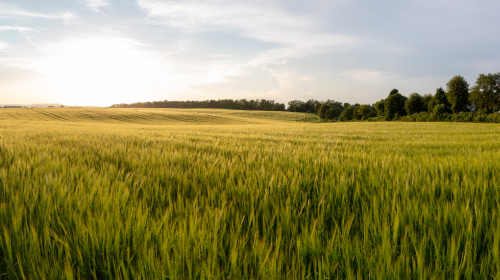
22 March 2024
Scientists from think tank Science for Sustainable Agriculture (SSA) have warned that The Department for Environment, Food and Rural Affairs’ (DEFRA) Environmental Land Management Schemes (ELMs) could be undermining food security. In a letter sent to the Environment, Food and Rural Affairs (EFRA) committee, the think tank highlights that the land-sharing approach of ELMs reduces the productivity of land, meaning that more food will need to be imported.
Sainsbury’s Chief Executive Simon Roberts has also said that some environmental policies developed in response to climate change and biodiversity loss pose a threat to food production, and that post-Brexit farm subsidies discourage some farmers from investing. He pointed to recent shortages of certain foods as evidence of the fragility of the UK food system.
DEFRA has published its annual progress update on the Nature Markets Framework as it works to achieve its goal of £1 billion private investment into nature by 2030. The update contains information on the development of standards for nature markets, the launching of Biodiversity Net Gain (BNG) legislation and the support available to farmers to access nature markets.
Farmers in England are being told to expect more frequent visits from Environment Agency (EA) inspectors enforcing the Farming Rules for Water regulations following measures to recruit more inspectors in response to the increased river pollution incidents. The EA say that they are committed to their ‘advice-led’ approach, which includes the creation of Soil and Nutrient Management Plans.
A survey conducted on behalf of educational charity Country Trust has found that around 40% of children don’t know that soil is important for food production. The research also showed that a third of the children don’t have the opportunities for hands-on learning about soil at home or at school.
A study of the Knepp Estate, one of the UK’s largest rewilding projects, has shown that the carbon sequestration benefit of rewilding is almost equal to that of new native woodland projects thanks in part new soil carbon sequestrating. The dual impact of rewilding on nature and carbon sequestration means that rewilding projects could bundle carbon and biodiversity credits in ecosystem markets.
A new fund backed by leading investors is aiming to raise $50 million to support farmers in the US transition to regenerative organic practises. The fund will provide farmers with loans to front the costs associated with investing in soil health, accessing new markets and the diversification of outputs - some of the main barriers identified by farmers to make the transition.
The Wildlife Trust and Royal Horticulture Society have launched a joint campaign to encourage gardeners to appreciate slugs and snails. The Making Friends with Molluscs campaign highlights the importance of slugs and snails in gardening, drawing attention to their role in returning nutrients to the soil and advising on how to help garden in harmony with them.
We will be taking a short break from the Week in Soil blog next week, but we’ll be back on 5th April!